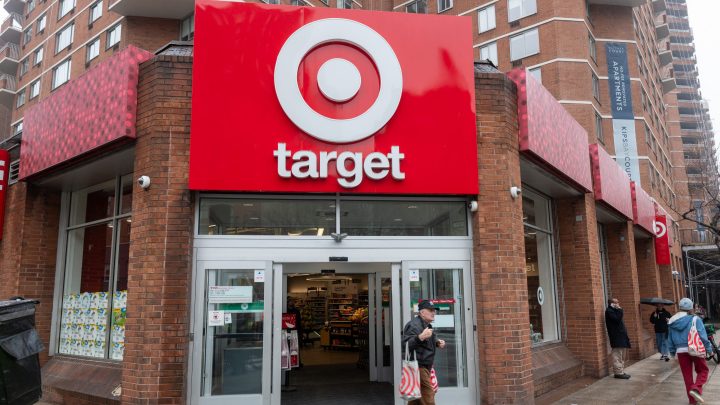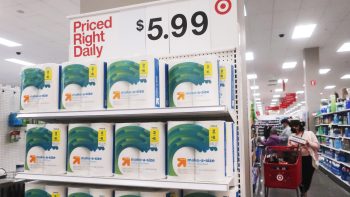
The art of the private label brand

We talk a lot about the spending habits of the American consumer here on the show. Goods versus services. Falling inflation and rising incomes. But let’s take a closer look at where folks are spending their dollars, and how they’re making them stretch.
Target, the country’s sixth largest retailer, said it expects sales for 2024 to be somewhere in the range of flat to two percent higher than last year as inflation saps consumer budgets.
Target has a plan though, and its CEO on Tuesday said key to that plan are the company’s private labels — the groceries, clothing and kitchen appliance brands that Target itself owns.
Private label sales across grocery and other retailers reached an all-time high last year, according to the Private Label Manufacturers Association.
But there’s an art and science to making your private label.
Target has over 45 private label brands. You might know some of them: there’s Good and Gather, for the slightly cheaper organic granola, and Threshold, for the slightly cheaper bath towels. But there’s also Spritz for party supplies, and Mondo Llama for art supplies, and California Roots for your Cabernet Sauvignons.
Retail analyst Sucharita Kodali at Forrester says the average Target customer probably doesn’t know those brands are private label, which is part of Target’s strategy.
“What having another brand enables you to do is sometimes just create different design packaging, and you can you know it may create the veneer of, ‘oh this is like a cool new brand that you may be wanting to try,'” said Kodali.
Consumers generally want their food, clothes and beauty items cheaper. But they don’t want to feel cheap buying them.
“The reality is price does communicate some kind of quality typically,” said Katie Thomas at consulting firm Kearney. “Retailers started to realize, ‘I can actually get a little closer to these name brand products, and it actually in some ways legitimizes me, especially if I’m still a little bit cheaper.'”
Private label products are also a good deal for retailers. They don’t have to split sales with name brands. And they can give house brands the best shelf real estate, because they own the shelf.
But David Swartz at Morningstar Research says private labels aren’t a cure-all for every retailer. He points to the clothing chain Kohl’s, which dropped several private label clothing lines even though they comprised a big chunk of sales.
“What Kohl’s found is that it didn’t really drive traffic to the store. Their ads will still show brands with brands like Nike and Adidas,” said Swartz.
In other words, national brands that Kohl’s thinks might be a bigger draw.
There’s a lot happening in the world. Through it all, Marketplace is here for you.
You rely on Marketplace to break down the world’s events and tell you how it affects you in a fact-based, approachable way. We rely on your financial support to keep making that possible.
Your donation today powers the independent journalism that you rely on. For just $5/month, you can help sustain Marketplace so we can keep reporting on the things that matter to you.

















